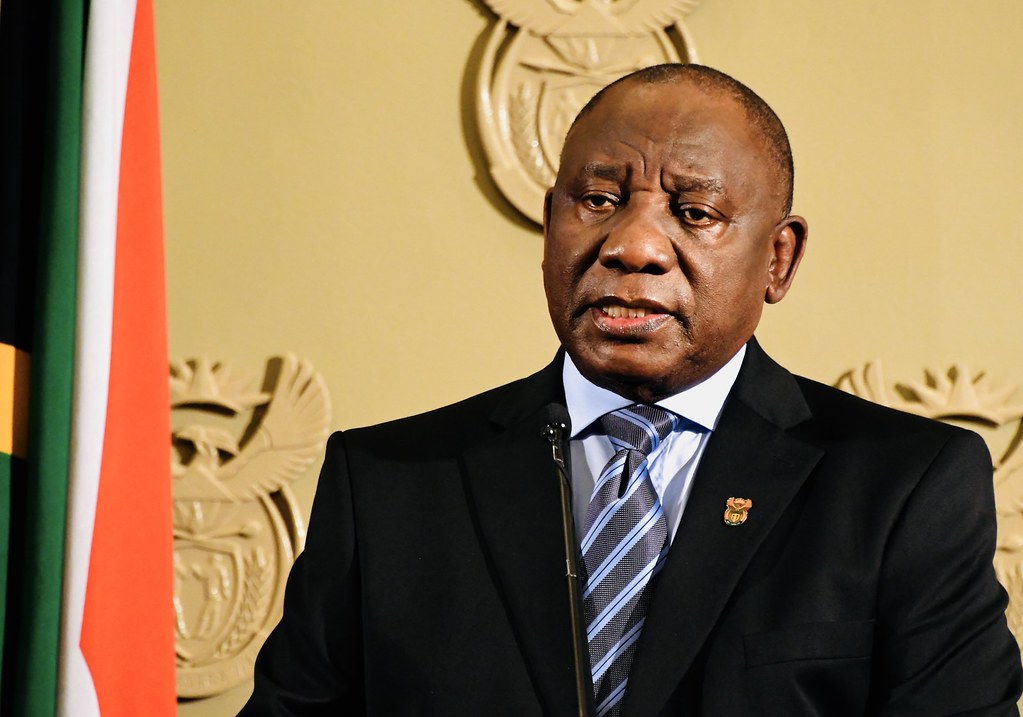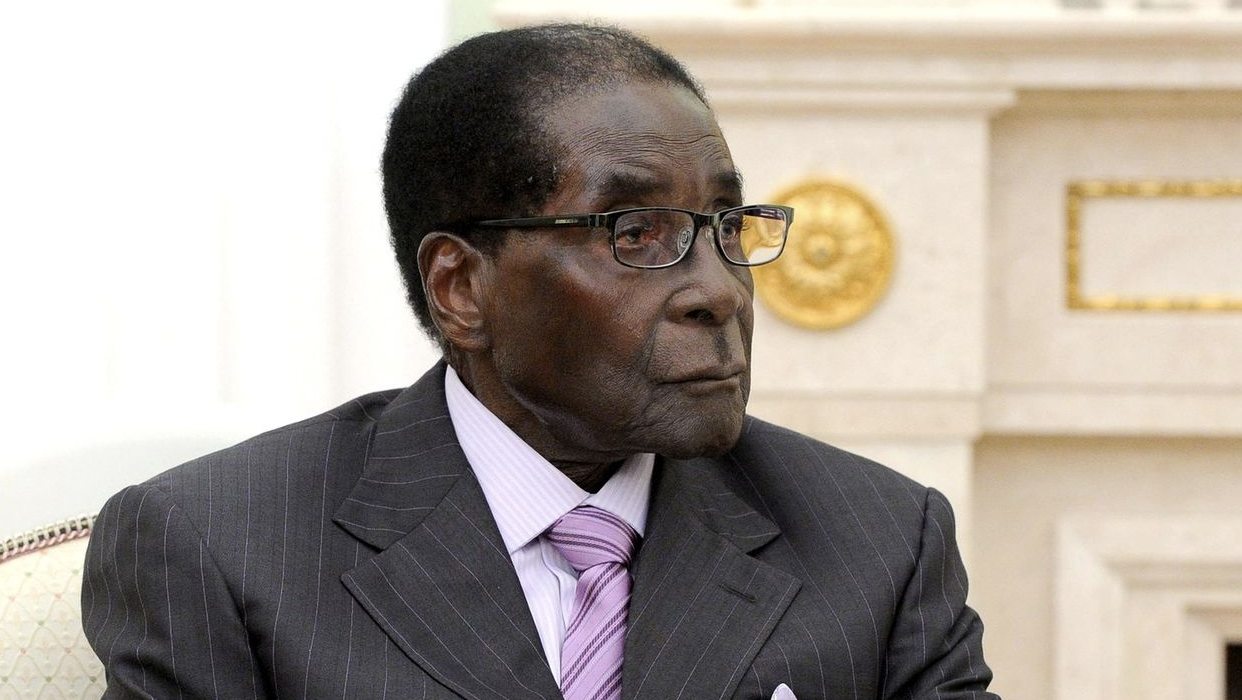News
A Confederacy of Dunces: Ramaphosa is Drowning in a Sea of Morbid Symptoms
A picture of a presidency – and a government – at sea, unsure of its powers and making up policy as it goes along, is emerging and the key drivers are not due process, the law and what is best for the country.

Research Director, The Brenthurst Foundation

Director, The Brenthurst Foundation

President Cyril Ramaphosa made a clear statement about the ANC’s view of the International Criminal Court (ICC) on Tuesday.
“The governing party, the ANC, has taken the decision that it is prudent that South Africa should pull out of the ICC largely because of the manner in which the ICC has been seen to be dealing with these types of problems.”
The “types of problems” that prompted Ramaphosa’s statement was a reference to the ICC’s decision to prosecute Russia’s Vladimir Putin for war crimes in Ukraine, specifically the extrajudicial rendition of children who were taken from their families and transported to Russia in one of the most grievous acts of social destruction by a state in recent times.
Ramaphosa’s statement was in direct contradiction with the party’s view. The ANC held its conference in December 2022, at which the highest decision-making body adopted a resolution reaffirming the party’s commitment to the court.
The resolution stated that the party was pleased that the International Criminal Court had been “substantively reformed for the better”.
So pleased with these reforms was the ANC that it went further to state that “the South African government must rescind the withdrawal from the ICC Court”.
Here is point 63 of the ANC’s 2022 conference resolutions on international relations in full:
“International Criminal Court (ICC)
“a. Noting the ANC’s previous position on the continental approach signalling countries of the continents’ withdrawal and robust engagement have positively impacted and contributed to the ICC being substantively reformed for the better.
“b. Further, noting that only a few countries in our continent have ratified the Malabo Protocol, thus delaying the establishment of the African Court of Justice and Human Rights.
“c. The ANC and the South African government must rescind the withdrawal from the ICC Court and intensify its lobby for the ratification of the Malabo Protocol.”
This is not a press statement or an off-the-cuff comment, but a resolution of its highest decision-making body on policy, the party congress.
As a consequence of this party decision, the government withdrew the International Crimes Bill, which would have seen the country pull out of the ICC.
Justice ministry spokesperson Chrispin Phiri was quoted saying: “Among those factors was the consideration that South Africa was one of the leading countries which had championed the Rome Statute”.
“On the balance, it remains far more strategic and important for South Africa to spearhead fundamental reforms to multilateral institutions like the ICC from within.”
The day after Ramaphosa’s statement on Tuesday, a second statement was issued by the presidency, saying that Ramaphosa had “erroneously” stated that South Africa was withdrawing from the ICC.
How is it possible that the President got something like this so wrong?
Was he not paying attention at the party congress? Was he playing Candy Crush when, in the NEC meeting which ended the day before his “erroneous” statement, the decision to remain in the ICC was reaffirmed?
Perhaps he was getting ahead of himself. The statement from his office correcting his “erroneous” statement did say, as an aside: “South Africa is considering a legislative amendment that would domesticate the Rome Statute so that it reflects all the articles of the Rome Statute. This includes provision of article 98 of the statute that requires a waiver of immunities for persons charged by the ICC from third-party countries where there is no referral by the United Nations Security Council.”
In other words, expect legislation to be rushed through Parliament allowing South Africa to weasel out of its commitment to arrest human rights violators before Putin arrives in Durban in August.
This was not the first time that the government flip-flopped on a major decision in recent months.
Eskom ‘exemption’
At the end of March, the Ministry of Finance shocked the country (and presumably some further afield) by announcing that corruption-riddled Eskom had been granted “a partial exemption” from the Public Finance Management Act and Treasury Regulation 28.2.1 for a period of three years.
Minister Enoch Godongwana said: “The intention really was to allow Eskom to have better financial statements.” In other words, the government wanted to hide the bad news about financial malfeasance from potential lenders.
Needless to say, there was a public outcry. Godongwana announced a week later that the exemption had been withdrawn.
Minister for Electricity
In March, Ramaphosa announced that Kgosientsho Ramokgopa had been appointed as Minister for Electricity to coordinate efforts to tackle the “severity and frequency of load shedding as a matter of urgency”.
Ramokgopa’s appointment would “deal with the challenge of fragmentation of responsibility across various departments and Ministers which, while appropriate under normal circumstances, is not conducive to a crisis response”.
In other words, Ramokgopa would have the final word on getting the country out of its power generation crisis. Ramaphosa was unambiguous:
“To effectively oversee the electricity crisis response, the appointed Minister will have political responsibility, authority and control over all critical aspects of the Energy Action Plan.”
And, in an earlier speech announcing his intention to appoint an electricity minister, Ramaphosa had said: “To deal more effectively and urgently with the challenges that confront us, I will appoint a Minister of Electricity in the Presidency to assume full responsibility for overseeing all aspects of the electricity crisis response, including the work of the National Energy Crisis Committee.” Note the phrases, “full responsibility” and “all aspects”.
It has since transpired that this is far from the case. Ministers Gwede Mantashe (Minerals and Energy) and Pravin Gordhan (Public Enterprises) will still play a large role in determining the approach. Mantashe has gone so far as to dismiss Ramokgopa as a “project manager”.
The Sunday Times reported last week that there was a “fierce battle” over who would be responsible for procuring new energy sources, and presumably the mix between hydrocarbons and renewables.
Electricity State of Disaster
In February, Ramaphosa declared a State of Disaster over electricity.
“It will enable us to accelerate energy projects and limit regulatory requirements while maintaining rigorous environmental protections, procurement principles and technical standards,” he said.
A shade under two months later, the State of Disaster was terminated.
Ramaphosa sidestepped the embarrassment, and the announcement was made by the Minister of Cooperative Governance and Traditional Affairs, Thembisile Nkadimeng:

“Government has terminated, with immediate effect, the National State of Disaster declared by the Minister of Co-operative Governance and Traditional Affairs on 9 February 2023.”
The statement defied credulity, claiming that the State of Disaster had been a success and was no longer necessary – just as the country entered another bout of severe load shedding.
“Minister Nkadimeng expresses her sincere appreciation for the constructive and collaborative way in which stakeholders in civil society have worked with government in a short space of time to achieve progress in keeping the lights on,” the statement said.
SABC board
Then there was the matter of the SABC board.
Ramaphosa sent the recommended list of board members back to Parliament for reconsideration, helpfully adding three additional names to consider.
A scathing legal opinion by Parliament’s lawyer, Andile Tetyana, pointed out that Ramaphosa had acted unlawfully – and he was forced to appoint the original board that had been sent to him for his signature.
National Orders
There was also the fiasco surrounding the issue of National Orders.
After an announcement had been made about the list of those to receive honours, a furore erupted over the inclusion of TV producer Duma Ndlovu, against whom State Capture allegations had been levelled.
The Presidency then announced that Ndlovu, as well as adventure sportsman, Mike Horn, and TV presenter, Freek Robinson, would also no longer be honoured. Robinson expressed surprise at the withdrawal of the honours he was to receive. “I was never informed; no reason was given,” he said.
What is really going on here?
What is emerging is a picture of the Presidency – and a government – at sea, unsure of its powers and making up policy as it goes along. The key drivers are not due process, the law and what is best for the country.
The major driving force appears to be the survival of the ANC and the self-interest of key members.
Instead of following through on its commitment to international treaties, it wants to please its authoritarian friends in Russia, which includes important party financiers.
Instead of facing the truth about corruption in Eskom, it wants to pretend all is well, while keeping the coal mining lobby happy.
Instead of accepting that the SABC is not under direct executive control, it wants a board that will help it plaster over the cracks in the public domain.
The old socialist hack, Antonio Gramsci, is often wheeled out for a good quote by the ANC crowd. They would do well to think about this one: “The crisis consists precisely in the fact that the old is dying and the new cannot be born; in this interregnum, a great variety of morbid symptoms appear.”
This article originally appeared on the Daily Maverick
Photo: GovernmentZA

